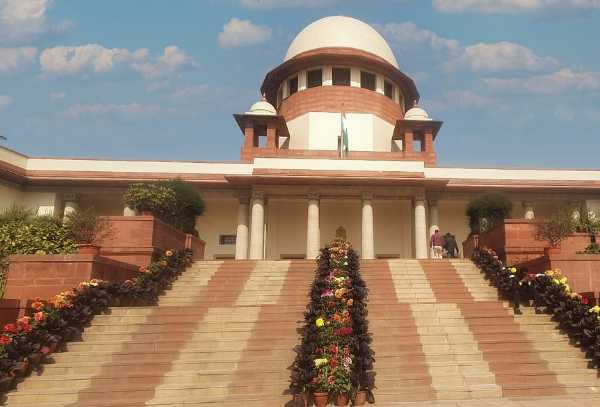Transfer of property means an act by which a living person conveys property, in present or in future, to one or more other living persons, or to himself, and one or more other living persons; and “to transfer property” is to perform such act. The Transfer of Property Act 1882 came into force on 1 July 1882.
WOMEN AND CHILD LAW
The Ministry of Women and Child Development has been administering various special laws relating to women such as 'The Protection...
Read More
TRANSFER OF PROPERTY LAW
Transfer of property means an act by which a living person conveys property, in present or in future, to one...
Read More
LIMITATION LAW
The 'Law of Limitation' prescribes the time-limit for different suits within, which an aggrieved person can approach the court for...
Read More
LEGAL PROFESSION IN INDIA
Legal profession is a profession, and legal professionals study, develop and apply law. In Indian, there is a requirement for...
Read More
LABOUR LAW
Labour law, (also known as employment law) the varied body of law applied to such matters as employment, remuneration, conditions...
Read More
JURISPRUDENCE
Jurisprudence, or legal theory, is the theoretical study of law. Scholars of jurisprudence seek to explain the nature of law...
Read More
INTELLECTUAL PROPERTY RIGHTS
Intellectual property rights are the rights given to persons over the creations of their minds. They usually give the creator...
Read More
INTERPRETATION OF STATUTES
Interpretation is the correct understanding of the law. This process is commonly adopted by the courts for determining the exact...
Read More
INTERNATIONAL LAW
International law is a system of treaties and agreements between nations that governs how nations interact with other nations, citizens...
Read More
INSURANCE LAW
Insurance law is the practice of law surrounding insurance, including insurance policies & claims. It can be broadly broken into...
Read More
INDIAN PENAL CODE
The objective of this Act is to provide a general penal code for India. Though not the initial objective, the...
Read More
INDIAN JUDICIAL SYSTEM
The Indian judicial system follows the common law system based on recorded judicial precedents as inherited from the British colonial...
Read More
HUMAN RIGHTS
Human beings are born equal in status, dignity, and rights. Human rights are those minimal rights, which every individual must...
Read More
FAMILY AND PERSONAL LAW
In India since Family Law is a mix of secular law i.e. law which applies regardless of a person's religion...
Read More
EVIDENCE LAW
The law of evidence, also known as the rules of evidence, encompasses the rules and legal principles that govern the...
Read More
ENVIRONMENTAL LAW
Environmental law is the collection of laws, regulations, agreements and common law that governs how humans interact with their environment....
Read More
CRIMINAL PROCEDURAL LAW
The Cr.P.C. is the main legislation on procedure for administration of substantive criminal law in India. It provides the machinery...
Read More
CIVIL PROCEDURAL LAW
The Code of Civil Procedure, 1908 is a procedural law related to the administration of civil proceedings in India. The...
Read More
CORPORATE LAW
Corporate law (also known as company law) is the body of laws governing the rights, relations, and conduct of the...
Read More
CONTRACT LAW
The general law of contract is based on the conception, which the parties have, by an agreement, created legal rights...
Read More
CONSUMER LAW
Consumer rights are the rights given to a "consumer" to protect him/her from being cheated by salesman / manufacturer. Consumer...
Read More
CONSTITUTIONAL LAW
Constitutional law, body of rules, doctrines, and practices that govern the operation of political communities. Modern constitutional law is the...
Read More
BANKING LAW
The Banking Laws (Regulations) provide a framework for supervision and regulation of all banks. It also gives the RBI the...
Read More
ALTERNATE DISPUTE RESOLUTION
Alternative Dispute Resolution (ADR) is a term used to describe several different modes of resolving legal disputes. It is experienced...
Read More
ADMINISTRATIVE LAW
Administrative law is the body of law that governs the activities of administrative agencies of government. Government agency action can...
Read More
Please note































